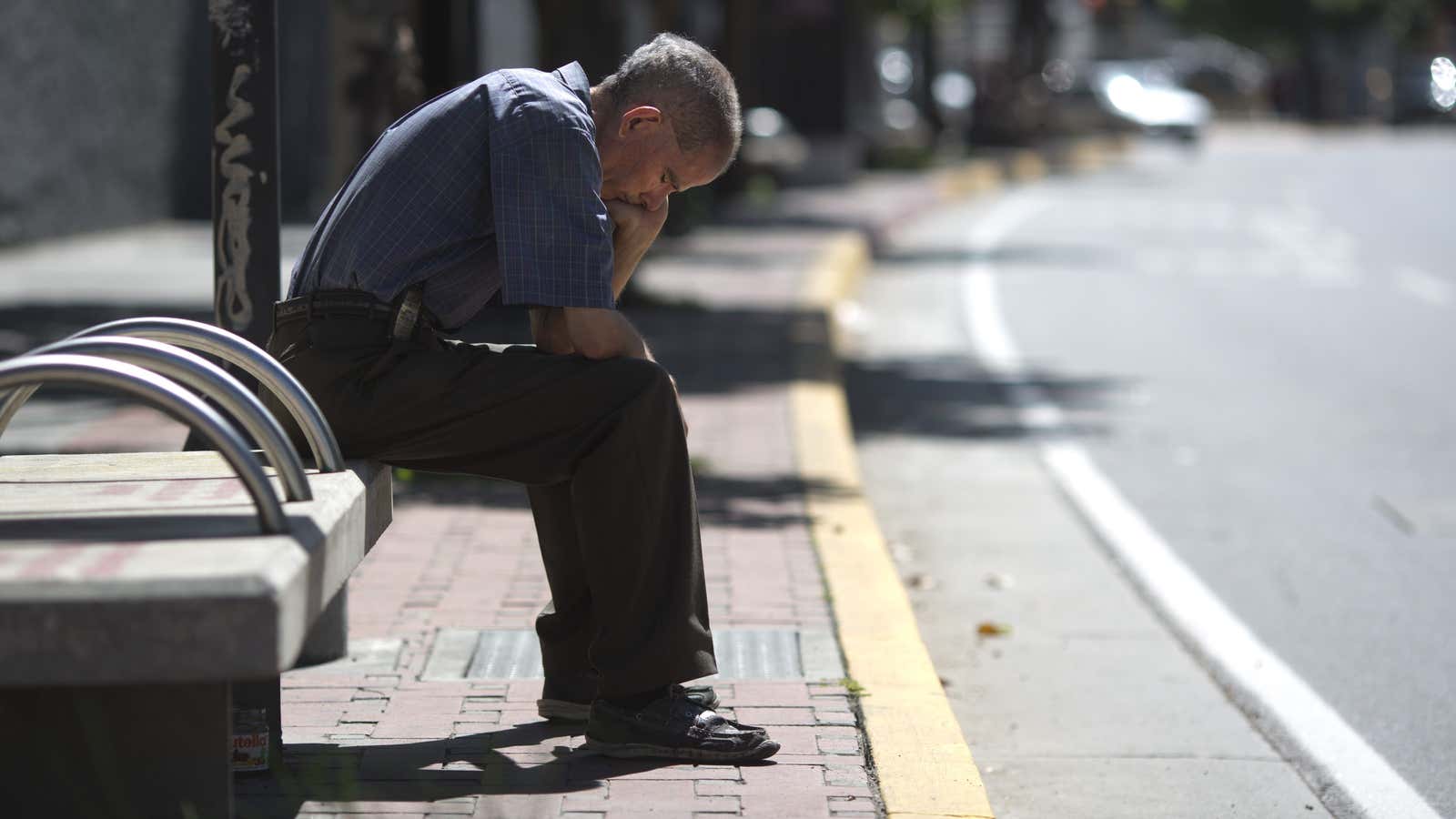From Denmark to Australia, a global loneliness epidemic is afoot. More people than ever before report feeling more lonely, isolated, or cut off from those around them. And for every lonely person, there seems to be a new psychological or anthropological theory as to why, from the digitalization of everything to a connection with obesity.
But what if it’s loneliness itself that’s making us so lonely?
In 2011, Stephanie Cacioppo and the late John Cacioppo, husband-and-wife psychologists at the University of Chicago, suggested an evolutionary model for loneliness. When people are lonely, the Cacioppos posited, they feel under threat, triggering a short-term self-preservation instinct. Some people respond “adaptively” to it and seek out human companionship to alleviate their bad feelings. But others have a “maladaptive” response, withdrawing even farther from those around them.
Over an 11-year study testing the theory, researchers found that people who said they felt lonely one year would score higher on a “self-centeredness scale” the next, as they withdrew to protect themselves from harm. The following year, they reported feeling lonelier still.
Researchers also have used neuroimaging techniques to reveal that lonely people exhibit heightened vigilance for social threats—meaning they’ll go to greater lengths to avoid being rejected or experiencing hostility. In practice, that might mean hiding away from other people and the possibility of being hurt.
A new study from the University of Chicago suggests something similar: In a survey of nearly 600 people in the US, the Cacioppos, along with lead author Elliot Layden, found that those who said they were lonely were twice as likely to also say that they stood slightly at a distance from their loved ones. And it didn’t matter whether how active their social lives were: Whatever the circumstances, people who felt lonely also described themselves physically adrift.
That’s because, as Stephanie Cacioppo says, loneliness isn’t about whether you’re married or single, alone or in a crowd. “Loneliness is really a discrepancy between what you want and what you have.” Indeed, people who live alone might be perfectly happy, while, according to one study, 63% of people who lived with a spouse still described themselves as feeling isolated and alone.
There are serious risks associated with even mild loneliness. It’s been shown to be almost as harmful to health as heart disease and smoking, and at least as likely to cause early death as obesity. But if lonely people lack the tools they need to reach out, the onus is on those around them—and on public services—to make the effort. That’s why the United Kingdom recently designated a Minister for Loneliness, and why US community services groups from San Francisco to Kenosha, Wisconsin, have programs in place to connect lonely people to phone and digital support groups.
Stephanie Cacioppo knows the value of this kind of support firsthand. She and her husband were engaged within eight months of meeting one another. Later, they would share a dozen bylines and even the same desk (the sign on the office door said “The Cacioppos”). When he developed cancer in 2015, the New York Times reported, they slept together in his hospital bed in matching surgical gowns.
But after John’s sudden death in 2018, Stephanie was forced to apply their research to her own life. “I’m the living proof of my science, how we can recover from loneliness,” she told The Daily Beast. “Ninety days ago I never thought I would survive and now, thanks to sports and social support, I can smile and have a taste for life again. It’s really interesting how the whole thing works.”
